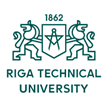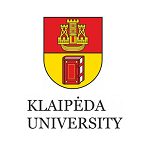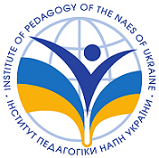ACTUAL MENTAL STATE OF STUDENTS IN PROCESS OF PHYSICAL EDUCATION CLASSES
Last modified: 26.02.2020
Abstract
The transformation of the education system is taking place in modern Russia. There is a transition to a flexible learning system, adapted to the educational needs of every person with any age, cultural, linguistic affiliation. Practical training disciplines are becoming increasingly important. Academic disciplines that form universal competencies are transferred to online learning. Physical Education is such disciplines. All theoretical training is translated online, and the share of classes in the gym is minimized. The purpose of this pilot study is to identify the actual mental state of students in the gym in the conditions of using game and competitive methods. In addition, an important task is to compare the well-being, activity and mood of students studying physical education in the gym and online. An adapted version of the Dembo-Rubinstein technique was used to diagnose such indicators of the current mental state as well-being, activity and mood. The dynamics of these indicators in the conditions of employment in the gym using game and competitive methods was studied using a formative experiment. It was established that real classes in the gym have a positive effect on the actual mental state of students. Most students have improved health, mood, and increased activity. At the same time, classes using the game method, in contrast to classes using the competitive method, are much more effective for activating students and improving their mood. Comparison of indicators of the actual mental state of students in real classes in the gym and online showed that classes in the gym are able to more effectively influence the mood and activity of students.
Keywords
References
Borkovits, M. (2013). Happiness in Physical Education Classes. Journal of Novel Physiotherapies, 3(3), 1-4.
Cherkashin, I.A., Platonov, D.N., & Migalkin, A.G. (2015). Izuchenie individual'no-tipologicheskih svojstv vysshej nervnoj dejatel'nosti i sensomotornyh funkcij studentov, zanimajushhihsja tajskim boksom. Uspehi sovremennogo estestvoznanija, 9(3), 576-578.
Dirlewanger, M., Di Vetta, V., Giusti, V., Schneiter, P., Jéquier, E., & Tappy, L. (1999). Effect of Moderate Physical Activity on Plasma Leptin Concentration in Humans. European Journal of Applied Physiology, 79(4). 331–335.
Derkach, A. A. (2012). Metodologicheskie sostavljajushhie sostojanija psihicheskoj gotovnosti k dejatel'nosti. Akmeologija, 3(43), 10-19.
Ganzen V.A., (1981). Sistemnyj podhod k analizu, opisaniju i jeksperimental'nomu issledovaniju psihicheskih sostojanij cheloveka. V V.A. Ganzen & V.N. Jurchenko (Ed.), Jeksperimental'naja i prikladnaja psihologija (5-16). Leningrad: Izdatel'stvo Leningradskogo universiteta.
Levitov, N.D. (1964). O psihicheskih sostojanijah cheloveka. M.: Prosveshhenie.
Olejnik, E.A., & Annenko V.V. (2018). Fizkul'turno-ozdorovitel'naja napravlennost' zanjatijami pilatesom v formirovanii zdorovogo obraza zhizni zhenshhiny v gorodskoj srede. Uchenye zapiski universiteta im. P. F. Lesgafta, 6(160), 139-143.
Sopov, V.F. (2005). Psihicheskie sostojanija v naprjazhennoj professional'noj dejatel'nosti, ucheb. posobie dlja studentov vuzov fizkul'tur. profilja. Moskva: Ros. gos. un-t fiz. kul'tury, sporta i turizma.
Zinchenko, V.P. (2010). Soznanie i tvorcheskij akt. Moskva: Jazyki slavjanskih kul'tur.








